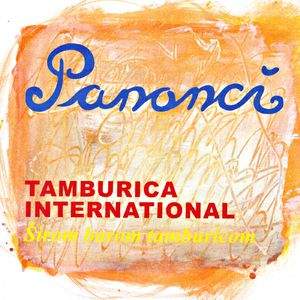Lettuce Tour 2025
November 19, 2025 -
Right now, the Lettuce tickets became available for everybody.
Everybody’s favorite band is already causing a lot of ruckus and sparking interest from lovers of quality music. The evidence for that is very clear. Their shows attract thousands of people even from neighboring regions. It is no wonder that the best venues are always being selected for their concerts. Thousands of people will be gathering around just to witness a star performing on stage.
Every fan will get a chance to experience the amazing performance of their favorite musician. This is going to be the most interesting tour of the year by far, and this is the best place to get your tickets right now. The quality music has to be experienced through live events only.
We are making sure to keep our tickets within the affordable price range while providing you with updated information on everything that’s happening in the music industry. Getting tickets for the first row is also not a problem. With us it is much easier to follow the Lettuce schedule and see where the next concert will take place. The most amazing experience is guaranteed!
It would be difficult to find a better way to enjoy music. This is exactly why fans keep travelling together with the band to many destinations around the world. This has to be experienced at least once and then you will understand why events like these happen everywhere. Simply check the concert’s details and see whether that’s exactly what you have been looking for.
When your favorite band arrives in your hometown, we will make sure to provide you with the best offers. Getting your tickets in advance is always cheaper and more convenient and with us you will get your tickets for the Lettuce 2025 tour very quickly!
Lettuce Tickets 2025 - 2026
Lettuce VIP Packages 2025/2026


About Lettuce
Lettuce (Lactuca sativa) is an annual plant of the daisy family, Asteraceae. It is most often grown as a leaf vegetable, but sometimes for its stem and seeds. Lettuce is most often used for salads, although it is also seen in other kinds of food, such as soups, sandwiches and wraps; it can also be grilled. One variety, the woju (t:萵苣/s:莴苣), or asparagus lettuce (Celtuce), is grown for its stems, which are eaten either raw or cooked. In addition to its main use as a leafy green, it has also gathered religious and medicinal significance over centuries of human consumption. Europe and North America originally dominated the market for lettuce, but by the late 20th century the consumption of lettuce had spread throughout the world. World production of lettuce and chicory for 2017 was 27 million tonnes, 56% of which came from China.
Lettuce was originally farmed by the ancient Egyptians, who transformed it from a plant whose seeds were used to create oil into an important food crop raised for its succulent leaves and oil-rich seeds. Lettuce spread to the Greeks and Romans; the latter gave it the name lactuca, from which the English lettuce is derived. By 50 AD, many types were described, and lettuce appeared often in medieval writings, including several herbals. The 16th through 18th centuries saw the development of many varieties in Europe, and by the mid-18th century cultivars were described that can still be found in gardens.
Generally grown as a hardy annual, lettuce is easily cultivated, although it requires relatively low temperatures to prevent it from flowering quickly. It can be plagued by numerous nutrient deficiencies, as well as insect and mammal pests, and fungal and bacterial diseases. L. sativa crosses easily within the species and with some other species within the genus Lactuca. Although this trait can be a problem to home gardeners who attempt to save seeds, biologists have used it to broaden the gene pool of cultivated lettuce varieties.
Lettuce is a rich source of vitamin K and vitamin A, and a moderate source of folate and iron. Contaminated lettuce is often a source of bacterial, viral, and parasitic outbreaks in humans, including E. coli and Salmonella.














